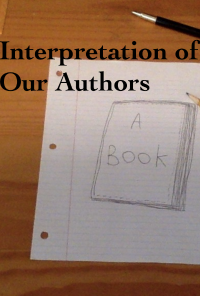Interpreting Steinbeck (A Guest Essay)
The authorship of this chapter is credited to “Prose.” user Mfrobs, who generously contributed it to this series.
“When I was very young and the urge to be someplace else was on me, I was assured by mature people that maturity would cure this itch,” opens John Steinbeck’s "Travels with Charley," a book that accounts for America in its entirety, much like Kerouac’s "On The Road," except Steinbeck was about sixty years old when he began this expedition and project and was moments away from accepting the Nobel Prize in Literature. He goes on, in "Travels with Charley," that for him, maturity never did take. That one of the most important minds to shape the landscape of America and impact the world never graduated from the phase of immaturity is greatly encouraging.
In a country and society where one is made to be significantly and materialistically successful and fiercely responsible and respectable, John Steinbeck refused this notion, exercising freedom and liberty and the principles of America by celebrating the lazy, the pitiful, drunks and convicts, the lost souls and the bums of civilization. Yet this only means something because his talent for the written word is mesmerizing and poetic.
Probably his greatest contribution to American letters is "The Grapes of Wrath." The opening sentence offers a wealth of interpretation and sets the pace for a beautifully scribed epic close to the realm of Homer’s "Odyssey" and Whitman’s "Leaves of Grass," “To the red country and part of the gray country of Oklahoma, the last rains came gently and did not cut the scarred earth.” The title comes from the "Battle Hymn of the Republic," a poem written during the [American] Civil War which uses biblical imagery to tell the story of an America being baptized, a new country where indeed all men are free and made equal, and the novel itself is occupied by forgiveness and redemption in a cruel world: tracing a family during the devastation of the Great Depression on their way to California, an ex-prisoner who was convicted for killing a man during a knife fight and has a revelation that all men are a part of a singular and greater soul, a former preacher and alcoholic who has only given up on the church because he cannot help himself in earthly desires, sexual activity in particular, becoming a character--almost representing the reader of the novel--of spirituality and of the material world simultaneously and a young pregnant woman who is abandoned by her husband and even in the wake of the realities in the ways of this world still offers herself fully to all those who need her warmth. Wedded to Steinbeck’s contribution is his absolute devotion to one simple concept often forgotten or overlooked or not recognized at all by the American public: complete and uncompromising compassion for humanity.
Earlier today, I went looking for my copy of "Tortilla Flats" which I read and annotated simply out of pleasure about seven years ago. Sadly I cannot find it and this is sad because it is a book that I remember becoming a very part of me. It is a wonderful and hilarious story and one of the few great novels that has a relaxed tone and essence and makes one chuckle all the way through. If I recall correctly, Steinbeck was adapting one of his favorite myths and legends in "King Arthur’s Knights," and the story follows three friends who have little money and almost no ambition and spend their days mostly laughing and drinking and sharing wine as though it were a holy kind of existence, and in many ways, it is a parody of commercial prosperity.
To put it plain, he can do it all. From the epic to a type of satire to very short novels that dig into every emotion. If a brief experience of his stuff is what you seek, then "Of Mice and Men" is recommended. It has got to be one of the earliest and finest ‘bromances’ of all time, chronicling two friends working with the dream of one day owning an acre of land for themselves and they really bust it trying to achieve this, before finally understanding, even as simple as this dream is, that it will never be accomplished. "Of Mice and Men" also explores a United States that overwhelmingly rejects minorities, basically out of tradition, and the consequences of this inherited and genealogical hatred and prejudices. In all his talent and poetic command of the sentence, Steinbeck is ultimately interested in equality for all people, classes, gender and races, which has always been considered unreasonable and juvenile in America. His effort for social justice on earth through his fiction would cost him his legacy and reputation as a very serious and important writer.
In an interview with the "Paris Interview" he admitted when he can’t write fiction, as is the case sometimes with anybody who tries at the art, he delves into poetry, even though he’s an amateur at the craft. It relieves him from the pressures of perfection and opens up the empty page for him, the spirit within, the child-like curiosity and freedom of expression, undoubtedly vital to creativity. And he commented on genius, saying that it is a young boy chasing a butterfly up a mountain. He’s unafraid and unashamed to recognize his own and forever youth and whether or not he’ll have me, I’m proud to call him one of my literary fathers.
-Mfrobs
